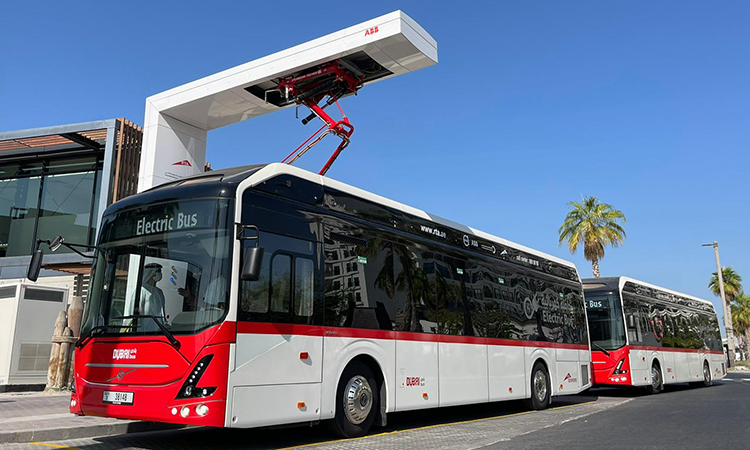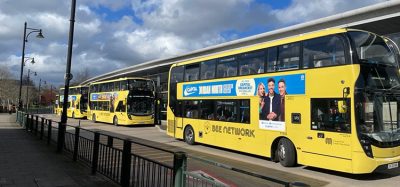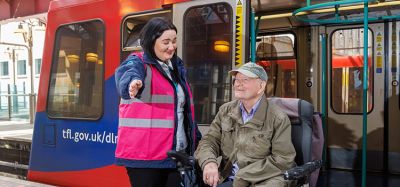Dubai RTA launches trial of two electric buses with opportunity charging technology
- Like
- Digg
- Del
- Tumblr
- VKontakte
- Buffer
- Love This
- Odnoklassniki
- Meneame
- Blogger
- Amazon
- Yahoo Mail
- Gmail
- AOL
- Newsvine
- HackerNews
- Evernote
- MySpace
- Mail.ru
- Viadeo
- Line
- Comments
- Yummly
- SMS
- Viber
- Telegram
- Subscribe
- Skype
- Facebook Messenger
- Kakao
- LiveJournal
- Yammer
- Edgar
- Fintel
- Mix
- Instapaper
- Copy Link
Posted: 18 November 2021 | Intelligent Transport | No comments yet
The electric bus trial, which will test opportunity charging technology for the first time in Dubai, will run until March 2022.


Credit: Dubai’s Roads and Transport Authority
Dubai’s Roads and Transport Authority (RTA) has announced the launch of a trial run of two electric buses, branded Volvo 7900. The two buses will shuttle on a specific path in both directions between La Mer South, King Salman bin Abdul Aziz Street and Al Sufouh Tram Station. The launch is coordinated with the Dubai Electricity and Water Authority (DEWA), Volvo Bus Company, Meraas Real Estate and ABB Group. The step reflects RTA’s efforts to provide sustainable and environmentally friendly mass transit means.
The two buses are fitted with opportunity charging technology, which is being experimented for the first time in Dubai. Buses are charged by a standing electric charger at La Mer South. A night electric charger is provided at Al Quoz Bus Depot to run the night charging when the two buses are out of service. Therefore, buses can be electrically charged either through pantograph, using a standing arm under which the bus is parked at La Mer, or cables connecting direct and alternate currents (DC and AC).
Each bus is equipped with modern batteries that enable it to travel 200km when fully charged. The length of the distance travelled is a function of several factors, such as the terrain of the road, temperature and the operation of the air conditioners. Each bus has 38 seats, in addition to three foldable seats, a place for People of Determination and an interactive display screen.
During the trial period, which will continue until March 2022, RTA will measure the operational efficiency of the two electric buses and experiment the charging of electric buses using the charger at La Mer, as well as the overnight charger at the Al Quoz Bus Depot. It will train drivers on driving the electric buses and familiarise them with the bus system. It will also train controllers on monitoring the electric buses and the charging unit. RTA will work with project partners to ensure the readiness of buses, electric charging units and the charging station.
“This unique and comprehensive electric bus charging system that uses the opportunity charging technique for operating electric buses on a specific path responds to the initiative of His Highness Sheikh Mohammed bin Rashid Al Maktoum, Vice-President, Prime Minister of the UAE and Ruler of Dubai themed: ‘Green Economy for Sustainable Development.’ It is part of RTA’s initiatives to support the use of eco-friendly vehicles and sustainable transit means. It concurs with the Dubai government’s energy and carbon strategy, aimed to make Dubai a model in the efficient use of energy and reduced carbon emissions,” said His Excellency Mattar Mohammed Al Tayer, Director-General and Chairman of the Board of Executive Directors of the Roads and Transport Authority.
“The project is a unique example of integrated efforts of government departments, as well as Public Private Partnership (PPP). It illustrates the integrated efforts of RTA, DEWA, Volvo Bus Co, Meraas Real Estate and ABB Group aimed to promote sustainable transport in Dubai and reduce carbon emissions of the transport sector. The success of deploying and operating electric buses and vehicles as part of RTA’s mass transit fleet hinges largely on the availability and reliability of the charging technology, and whether it supports the continuous operation of buses without stopping or having to return to the charging stations,” he added.
“RTA attaches top priority to environmental conservation and power-saving policies and sets safety and environmental sustainability as one of its strategic goals. It, therefore, seeks to keep pace with the latest technologies of manufacturing buses, electric batteries and various charging systems. It underscores the intention to add electric buses to the RTA fleet in future to ensure the operation of safe, smooth and sustainable mass transit means. It is recalled that RTA had launched a series of projects and initiatives to leverage sustainable transport, including the trial run of electric buses and the operation of hydrogen or water-powered taxis,” concluded Al Tayer.
RTA managed to convert 50 per cent of the total Dubai taxi fleet into environmentally-friendly hybrid vehicles in 2020. It intends to convert the entire taxi fleet to hybrid and electric vehicles by 2027. In December 2019, it launched the trial run of the first hydrogen taxi in the Middle East and deployed it as a limo service at the Dubai International Airport.
Related topics
Alternative Power, Fleet Management & Maintenance, Infrastructure & Urban Planning, Public Transport, Sustainable Urban Transport
Related modes
Bus & Coach
Related cities
Dubai, United Arab Emirates







